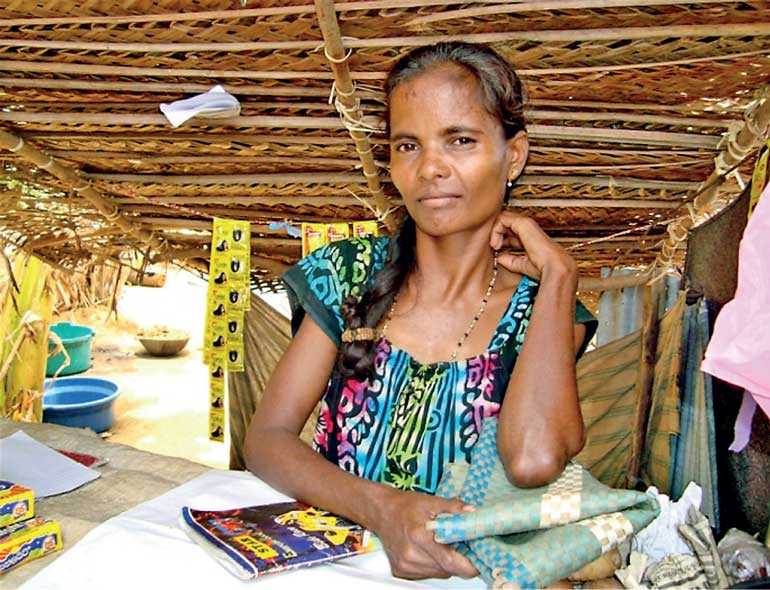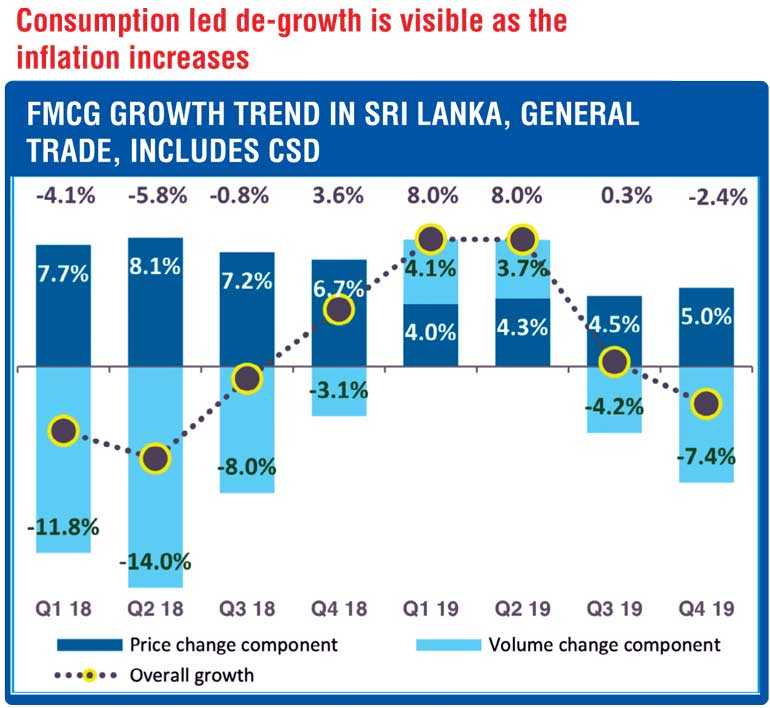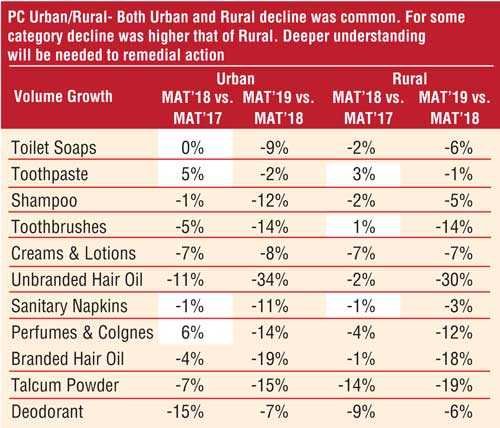Wednesday Feb 25, 2026
Wednesday Feb 25, 2026
Wednesday, 19 February 2020 00:00 - - {{hitsCtrl.values.hits}}

Sri Lanka housewife challenged – 7.4% volume decline in retail off take
After almost six quarters of negative growth, starting from Quarter 1 2016, Sri Lanka saw overall general trading conditions recovering to register +4.1% GDP growth in Q1-2019 and +3.7% in Q2-2019 which was a welcome sign to a typical Sri Lanka housewife.

Housewife in trouble – 7.4% in Q4, 2019
The latest data released from Top research agency Nielsen reveals that once again the Sri Lankan household is heading into trouble with a -4.2% decline in Q3, 2019 on retail off take and a -7.4% decline in Q4, 2019.
This data justifies the research data published last month by Sunday Times Business where only 18% reported that the Government had solved the key issue cost of living after almost two months after assuming duty in the country. I guess the policy decisions to give an injection by way of the PAYE tax break, the one-year moratorium on the capital payment on SME loans and the Rs. 1,000 wage hike to the estate sector. However, given the sea change that was required to implement such changes hit a concrete wall. Hence, the original objectives to stimulate the economy has not yet happened.
Drastic change in consumer behaviour
If one does a deep dive on the product wise changes seen at the consumer household end, the situation is very serious.

For instance in the urban market a basic like toilet soap consumption has declined by 9% in volume whilst in the rural market the decline is at 6% which means that there is a serious lifestyle issue at the household end. If one analyses the psyche of a Sri Lankan woman, the hair is an asset not only for beauty but it also signifies the discipline that one has been nurtured in a home. However, the volume consumption of branded oil has declined by -19% in the urban market and -18% in the rural market in 2019. What is strange is that the consumption of unbranded oil has declined by a staggering -34% in the urban market and -30% in the rural market which indicates the challenge in a typical Sri Lankan home.
We see a similar declining consumption in the shampoo, sanitary napkins, perfumes, colognes and creams, which means that there is a serious problem on the disposable income at the household end.
What is interesting is that the above market reaction comes in the backdrop of the advertising spend of Rs. 125.4 billion at a growth of +4% as against last year. The Rs. 125 billion is only the top line numbers on rack rates, the below the line spend such as consumer promotions, bill boards and POSM can be another 100 billion plus is the market estimate.
Election year 2020
The above situation will have a serious ramifications on the voting patterns given that Sri Lanka is set to have General Elections shortly and then Provincial Council Elections. Hence, one way out for the Government is to kick start the demand generation process and thereby increase employment and disposable income. But a point to note is that as at now the negativity at the household end is such that getting a mandate of a two-thirds majority will be a challenge. One way out is for a coalition government to come to play post the General Elections. I guess time will tell.
Governance gone wrong 
Whilst there was an upbeat momentum in ‘Governance’ in play post the 16 November elections, the Airbus-SriLankan deal that got exposed by the global fraud agency created a major uproar in the country given that this deal took place in 2013 when the hierarchy of the current Government was in power. This has led to an embarrassment of the policymakers and getting into a catch 22 situation.
Another issue highlighted in the weekend media was that post the arrests made in 2020 and remanded, the people are subsequently released pending the legal process taking form. This has become a fad in the recent past which needs the attention of the policymakers given that this year is an election year.
Some are questioning why some remanded people fall ill and request docking in the prison ward or they file for anticipatory bail which a common man will not have the luxury to activate. The point that needs to be highlighted is that these developments only hurt the confidence level at a household end which is struggling to keep the home fires burning.
What next
Hence we see that at the macro end and at the micro end at the household, things are very rough. The only accepted way forward is to focus and aggressively drive free trade agreements, namely to increase the quota utilisation of the FTA with India and Pakistan. Thereafter prepare the country on the termination of the EU GSP+ facility announced for 2023. We also must pursue new trade ventures with China, Singapore and Thailand. But I guess we have no option this will take the backseat as 2020 is an election year.
(The writer can be contacted on [email protected]. The thoughts expressed are strictly his personal views and not those of the organisations he serves in Sri Lanka or in the South Asian region.)